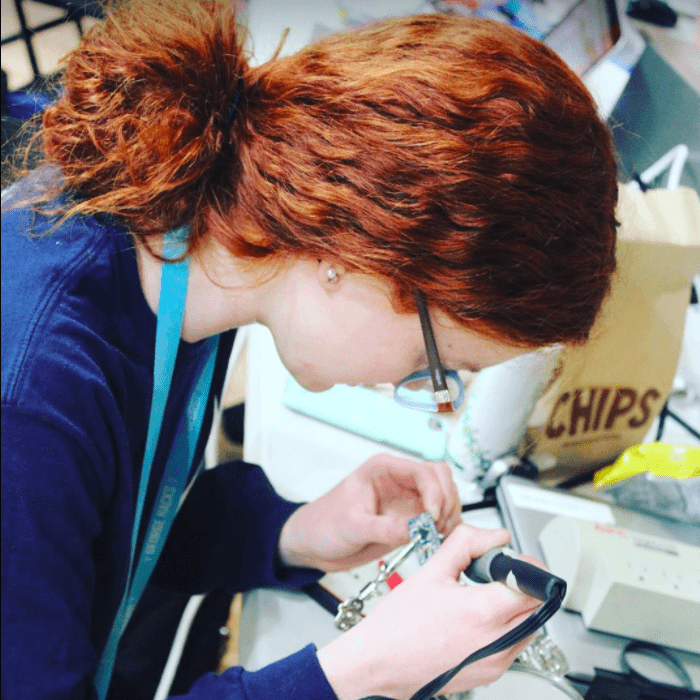
One of my core beliefs is that if we give people access to the data, information, and tools they need to solve their own problems, they will.
The Maker movement is an example of a group of people who embody this idea. They modify and improve the world around them. They look at a problem and not only say, “I am going to fix that,” but “my community is going to fix that.” The Maker movement is about a return to craft, but upgraded thanks to tools like 3-D printers.
Imagine what would happen if MacGyver had access to a maker space or fab lab. Imagine what will happen as low-cost manufacturing tools allow people experiencing health-related problems to prototype and test solutions.
I see a parallel between the e-patient movement and the Maker movement. I think what happened with the democratization of access to information and data is going to be mirrored in the democratization of design and manufacturing tools.
We know that to untangle and improve our health care system we are going to need all the ingenuity and help we can get. Let’s do what we can to put tools into people’s hands. Let’s build people’s confidence about prototyping and testing ideas. Let’s see what people do when we give them access to their own data.
For more on this theme, check out my Stanford Medicine X keynote from 2016:
Featured image: Shea Metzgar working on her project for the inaugural George Hacks, a medical and assistive device hackathon held at George Washington University on March 24-25, 2018. Read about what the top four teams came up with in just 24 hours. Credit: Isabella Sardegna.
Of course you know I’m aligned with this thinking. I’ll propose a tweak to the wording, though, based on numerous times people have argued with me about it!
They say “I TRIED giving them access to the chart. They didn’t look. I TRIED prescribing a fitness tracker. They didn’t use it. Those things mostly end up on eBay.” So goeth the grouse.
So I’ve learned to approach it different. “Give people access to tools and they’ll be able to do things they long for, and maybe even things they’d never dreamed of.” Don’t give them access, and they surely will be less able, which leads reliably to the circular thinking “Patients can’t create anything useful – why even bother??” or – my personal bugaboo – “Download makes little sense since at the moment there is nothing a patient can do with a download. … Transmit makes even less sense since there is no place to transmit the data to.”
“Imagine if MacGyver??”, they ask? “My patients are nothing LIKE MacGyver. You live in a fantasy world.” So they give MacGyver nothing and say “See??” Not unlike the school athletic directors in the 1960s who saw no point in having girls’ sports, because obviously girls aren’t athletic, as anyone could plainly see.
Perhaps give us our data and let us SEE what we can do with it.
The whole idea behind the stodgy view is the classic well-meaning paternal industry thinking, “Look, this is our BUSINESS – if there was anything useful to be done, we would have thought of it!” Exactly parallel to Detroit in the ’80s saying “If it were possible to build a more reliable car, we would have done it!”
The ultimate disproof of that view in medicine is the OpenAPS movement, which didn’t even start with an objective in mind – they just looked at the data and the tools and cobbled something together iteratively … something that works better than anything the industry offers.
Give tools to the people who have a problem and HELP them try to solve their own problem. Couldn’t agree more. 🙂 As you say:
“Let’s do what we can to put tools into people’s hands. Let’s build people’s confidence about prototyping and testing ideas. Let’s see what people do when we give them access to their own data.”
And let’s (forcibly) not listen to the people who say there’s no point trying because nothing’s been done yet.
Yes! Love this approach. And I love your connecting this to Title IX and OpenAPS.
Thanks!
I recently cited a related Jefferson quote that I first heard from SPM co-founder Alan Greene MD, in Feb 2009. (Yes, it’s burned that well into my memory.)
“…wherever the people are well informed they can be trusted with their own government…”
(Since some people think this is apocryphal, I’ll note the source in the Library of Congress.)